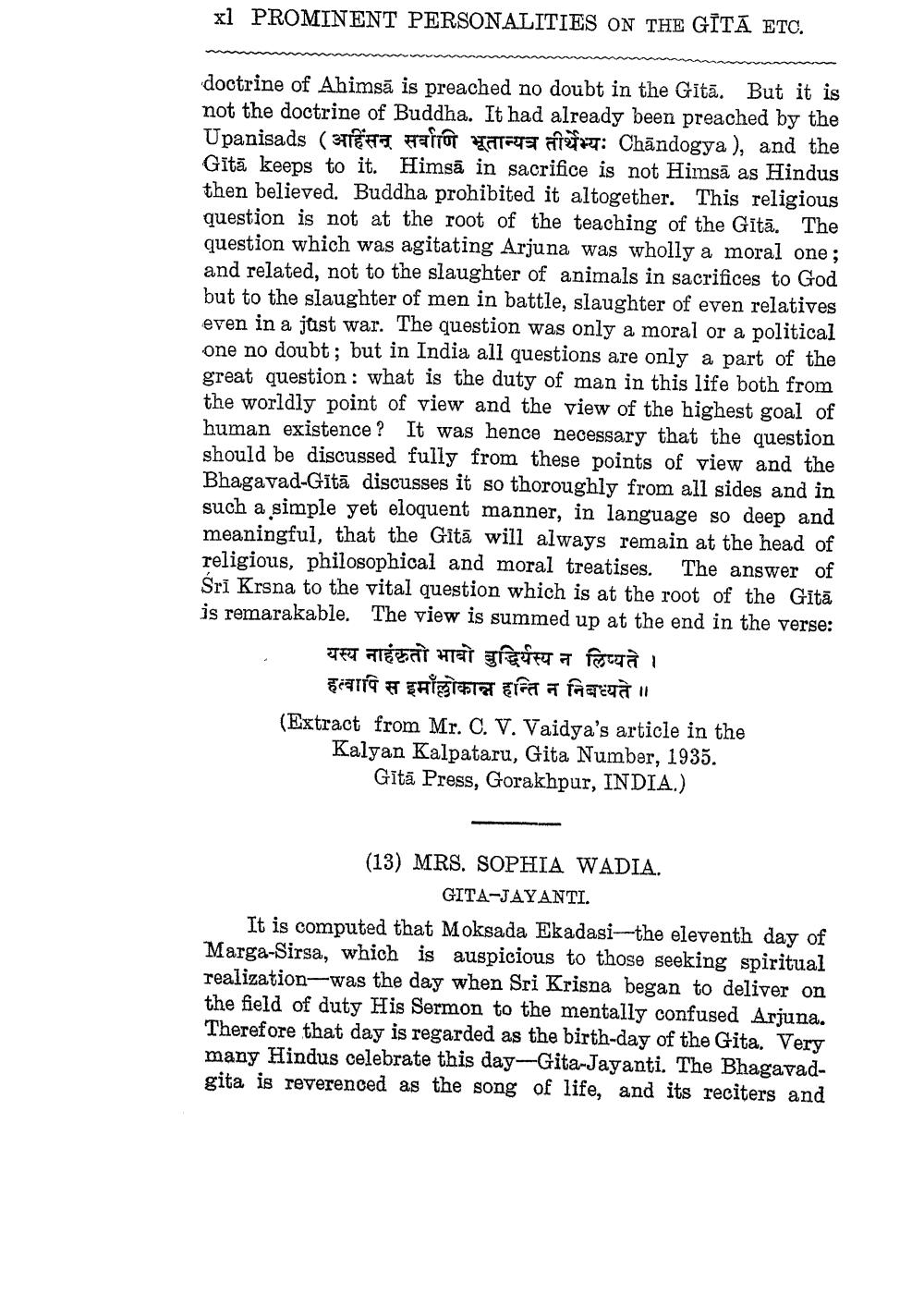________________
xl PROMINENT PERSONALITIES ON THE GĪTĀ ETC.
doctrine of Ahimsā is preached no doubt in the Gitā. But it is not the doctrine of Buddha. It had already been preached by the Upanisads (STERET FEITO Arts aretat: Chāndogya ), and the Gītā keeps to it. Himsā in sacrifice is not Himsā as Hindus then believed. Buddha prohibited it altogether. This religious question is not at the root of the teaching of the Gītā. The question which was agitating Arjuna was wholly a moral one; and related, not to the slaughter of animals in sacrifices to God but to the slaughter of men in battle, slaughter of even relatives even in a just war. The question was only a moral or a political one no doubt; but in India all questions are only a part of the great question : what is the duty of man in this life both from the worldly point of view and the view of the highest goal of human existence? It was hence necessary that the question should be discussed fully from these points of view and the Bhagavad-Gītā discusses it so thoroughly from all sides and in such a simple yet eloquent manner, in language so deep and meaningful, that the Gitā will always remain at the head of religious, philosophical and moral treatises. The answer of Sri Krsna to the vital question which is at the root of the Gītā is remarakable. The view is summed up at the end in the verse:
यस्य नाहंकतो भावो बुद्धिर्यस्य न लिप्यते ।
हत्वापि स इमाँल्लोकान्न हन्ति न निबध्यते ।। (Extract from Mr. C. V. Vaidya's article in the Kalyan Kalpataru, Gita Number, 1935.
Gītā Press, Gorakhpur, INDIA.)
(13) MRS. SOPHIA WADIA.
GITA-JAYANTI. It is computed that Moksada Ekadasi-the eleventh day of Marga-Sirsa, which is auspicious to those seeking spiritual realization was the day when Sri Krisna began to deliver on the field of duty His Sermon to the mentally confused Arjuna. Therefore that day is regarded as the birth-day of the Gita. Very many Hindus celebrate this day-Gita Jayanti. The Bhagavadgita is reverenced as the song of life, and its reciters and




